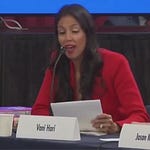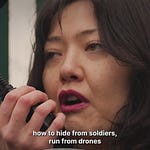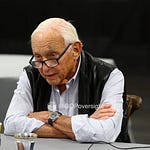In Gaza, Israel has implemented a policy requiring residents to collaborate with its forces or face severe consequences, including airstrikes, starvation, and displacement. This strategy, reported in August 2025 by Euro-Mediterranean Human Rights Monitor, targets families in northern Gaza, pressuring them to act as informants or form armed militias aligned with Israeli interests. Non-compliance results in bombardment, forced migration south, or death, aiming to erode community trust and resistance.
A key figure in this policy is Yasser Abu Shabab, a Bedouin warlord leading the Popular Forces, a militia of approximately 100 men, including former prisoners and ISIS-linked fighters. Armed and supported by Israel since early 2025—as confirmed by Israeli Prime Minister Benjamin Netanyahu’s statements on “activating” local clans—Abu Shabab’s group operates in eastern Rafah, controlling aid distribution points for the Gaza Humanitarian Foundation (GHF). Reports from +972 Magazine in September 2025 detail how these forces loot aid convoys and target civilians, contributing to massacres at distribution sites. Leaked documents from September 27, 2025, reveal the Palestinian Authority (PA) provided $15 million in funding and dispatched officers to train his militia in coordination with Israel. Hamas issued a 10-day ultimatum in July 2025 for Abu Shabab’s surrender, labeling him a traitor, but Israeli protection has rendered this ineffective; several of his members surrendered to Hamas on September 27, 2025, following executions of collaborators.
On September 26, 2025, the Bakr family in Gaza City’s Al-Shati refugee camp faced this ultimatum. An Israeli intelligence officer demanded they form a militia like Abu Shabab’s to remain in their homes. Refusing collaboration, the family’s elder chose displacement, stating he preferred “the suffering of displacement over treason.” That evening, Israeli airstrikes struck their residential square, killing at least nine, including women and children, and injuring others, as reported by Euro-Med. Social media posts, including from survivor Motassem Baker, and videos documented the devastation, with rescuers recovering bodies from rubble. Similar incidents targeted the al-Deiri and Daghmash families, with over 60 deaths reported across nearby neighborhoods after rejections, including shelling and car bombs in Al-Sabra.
Humanitarian workers face coercion, with +972 Magazine reporting in September 2025 that aid organizations in northern Gaza must share operational details and beneficiary lists with Israeli forces to continue their work. Non-compliance risks abandoning vulnerable populations, while compliance implicates them in surveillance. Abu Shabab’s militia exacerbates this, controlling aid routes and turning distribution into opportunities for violence and theft. Emerging groups, such as Ashraf al-Mansi’s militia in northern Gaza and Hussam al-Astal’s Khan Yunis militia, follow this model. On September 28, 2025, an i24 News interview shared on X featured al-Astal admitting, “We are with legitimacy, and there are figures from the Palestinian Authority who respond to us and support us,” confirming PA coordination and Israeli backing, sparking outrage as evidence of open collaboration.
Israeli Finance Minister Bezalel Smotrich outlined this strategy in October 2024, presenting Palestinians with three options: exile, submission to Israeli control, or death through siege and annexation if resistance persists. This policy, coupled with arming figures like Abu Shabab and al-Astal, aims to fracture Gaza’s social fabric and suppress resistance. Palestinian factions, including Hamas, have condemned Abu Shabab, with his Tarabin tribe disavowing him in May 2025 for “supporting the Zionist occupation.” Social media reflects widespread outrage, highlighting the Bakr family’s refusal and subsequent airstrikes as evidence of systematic retribution.
As of September 28, this policy continues to destabilize Gaza, targeting civilians and aid efforts while leveraging local collaborators to enforce control. The Bakr family’s stand and others like it underscore a refusal to submit, despite the heavy cost in lives and displacement.












